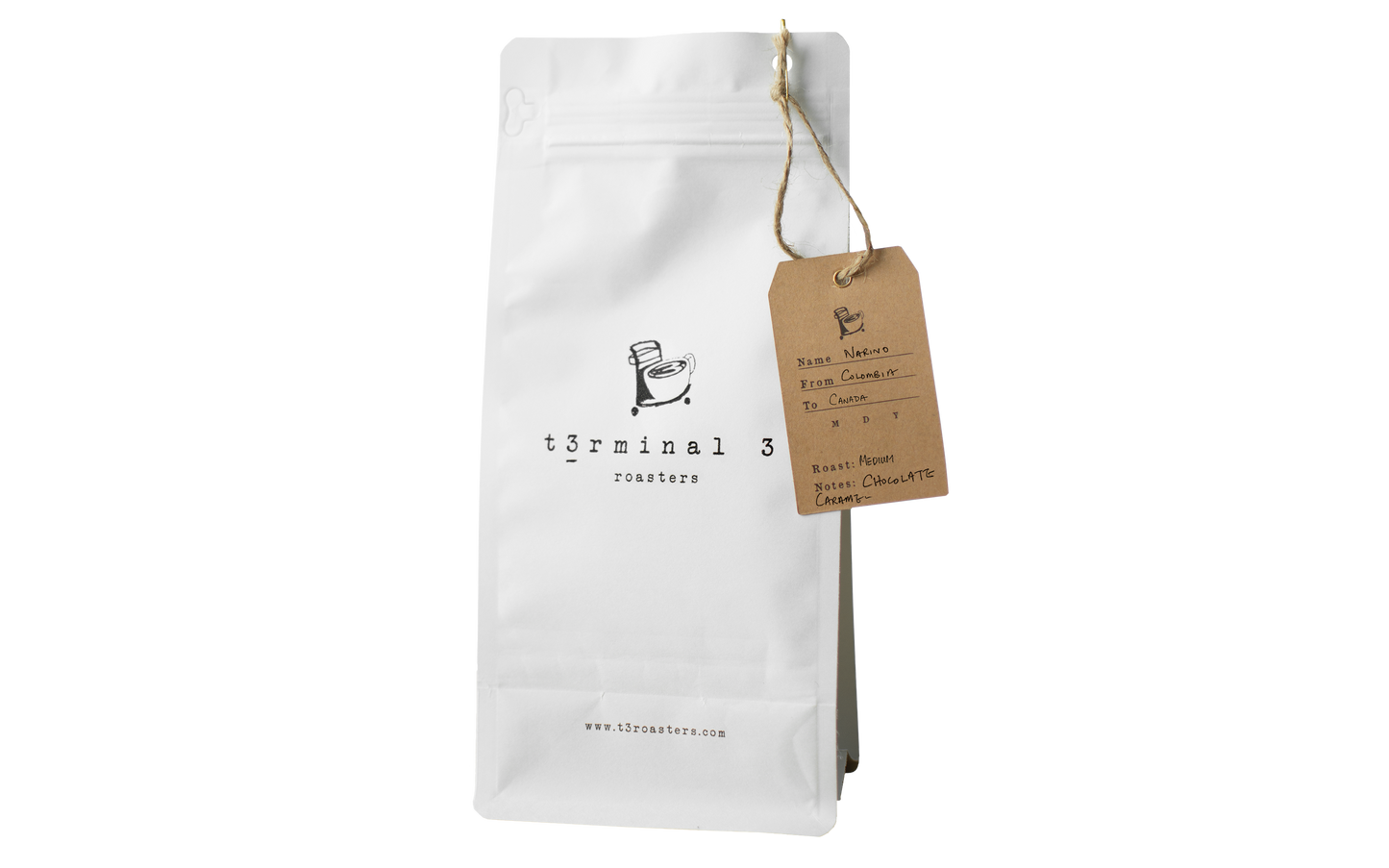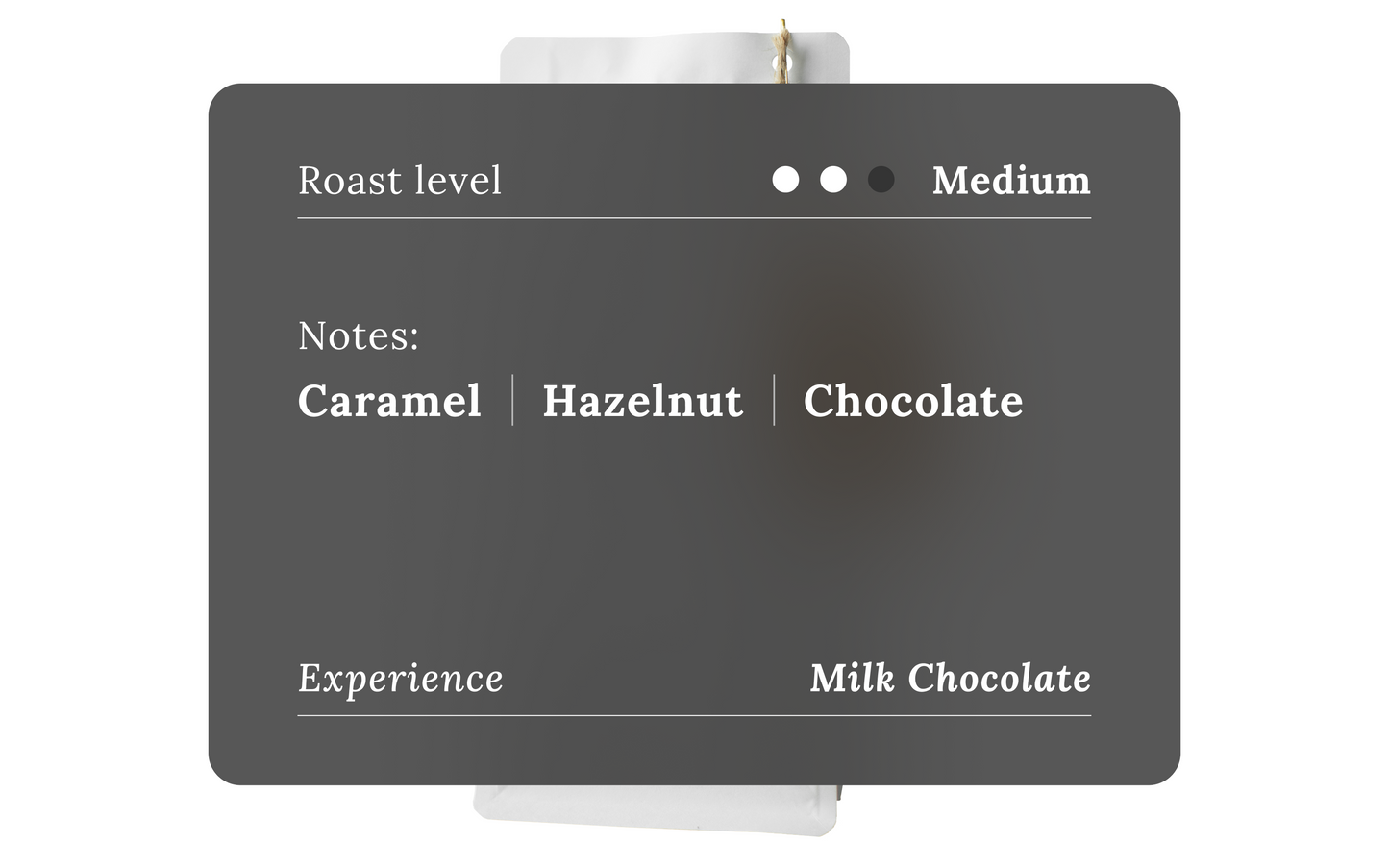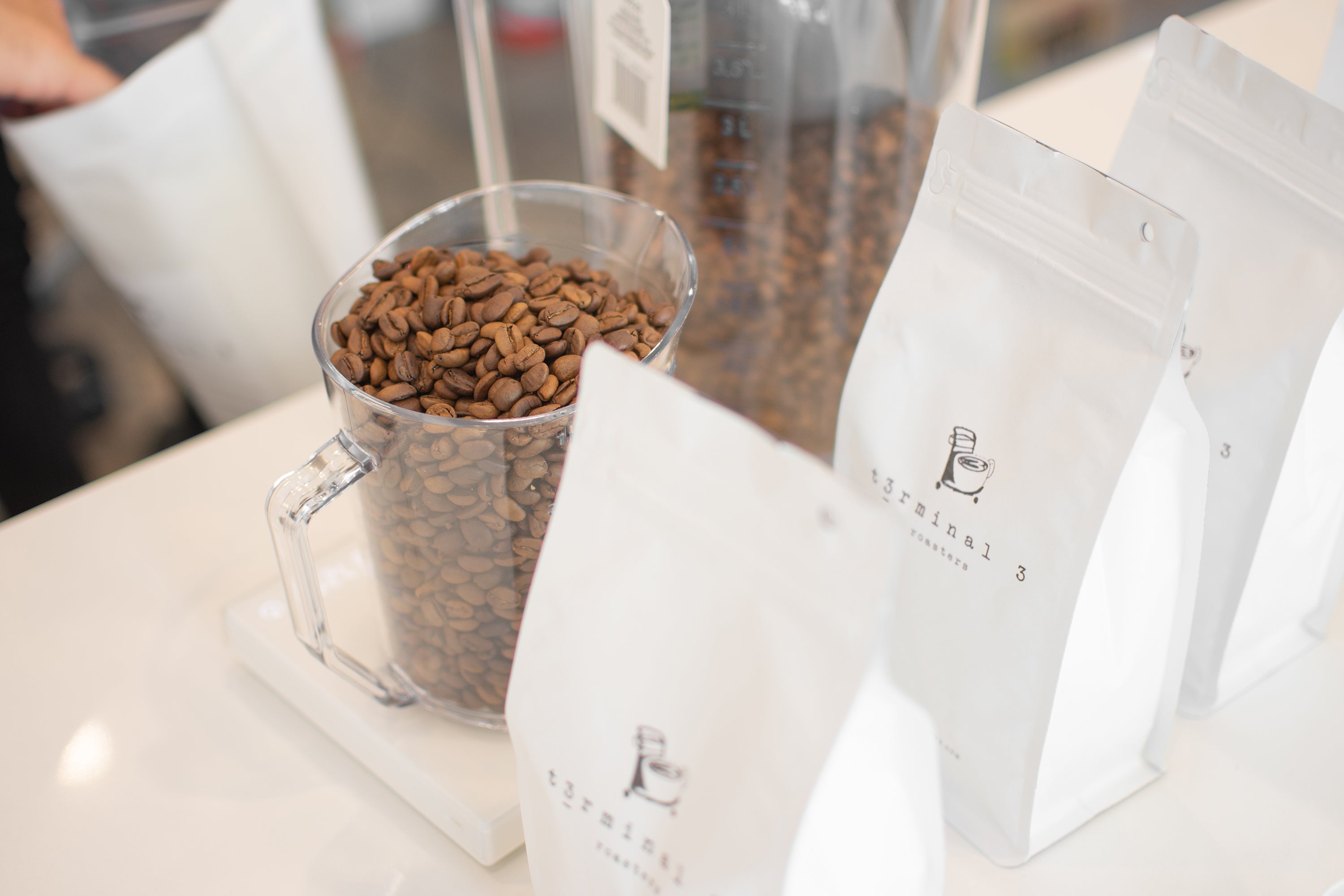Colombia - Narino
Colombia - Narino
Couldn't load pickup availability
- Medium Roast
- Narino, Colombia
- Colombia, Castillo, Caturra - Washed
- 1500-2200 Meters Above Sea Level
- Caramel, Hazelnut, Chocolate – Specialty Chocolate
- 340g | 12oz
- Espresso, Drip, French Press
Acidity ◉ ○ ○ ○ ○ Body ◉ ◉ ◉ ◉ ○
Sweetness ◉ ◉ ◉ ○ ○ Aftertaste ◉ ◉ ◉ ○ ○
Please note: Pre-ground coffee beans can quickly lose their freshness, resulting in a notable decrease in aroma and flavor. For this reason, we do not offer a grinding service. We strongly encourage our customers to grind their coffee beans just before use for the best experience.
View full details

Terminal 3 at Home
Brewing Recipes
Espresso
Dry Dose → 20g ± 0.2g
Yield → 38g ± 2g
Extraction Time → 30-33 Seconds
French Press
Water Temperature → 90 °C
Grind Size → Medium Coarse
Dry Dose → 30g
Water Ratio → 1:15
Pouring Method
Pour - 0:00 - 450g
Stir in Circles for 3 Times at 3:00 min
Total Brewing Time → 5:00 min

About the bean
If you're seeking a daily espresso with notes of dark chocolate, caramel, and hazelnut, this Colombian bean from FUDAM is an ideal choice. It's highly versatile, performing excellently in straight espresso and milk-based beverages. Additionally, it proves successful in various brewing methods such as mocha pot, drip coffee, and French press.
FUDAM, or the Fundación Agraria y Ambiental Para el Desarrollo Sostentible, comprises 300 organic-certified growers (also Rainforest Alliance-certified). Founded in 2000 by seven visionary producers in La Unión, Nariño, FUDAM initially focused on sustainable agriculture, environmental protection, and community development. Unlike coffee-growing regions like Cauca, where farms are typically uphill from towns, La Unión's geography presents a unique landscape: towns are at high elevations while farms are nestled at lower elevations amidst towering peaks and rugged terrain.
Members of FUDAM remain dedicated to sustainability, a core value that has bound them together since their inception. When asked recently about their steadfast commitment to organic farming despite external pressures favoring chemical inputs, the association's leadership affirmed, "This is not just a practice for us; it is our way of life and our deeply held beliefs."
The farmers at FUDAM conduct their coffee harvesting during the day, followed by depulping in the afternoon and a dry fermentation period lasting 16–24 hours. The beans are typically washed two or three times before being dried using methods that include small "casa elbas," mechanical dryers, or parabolic dryers. Mechanical drying lasts between 25–40 hours, whereas other drying techniques may extend up to 15 days.


